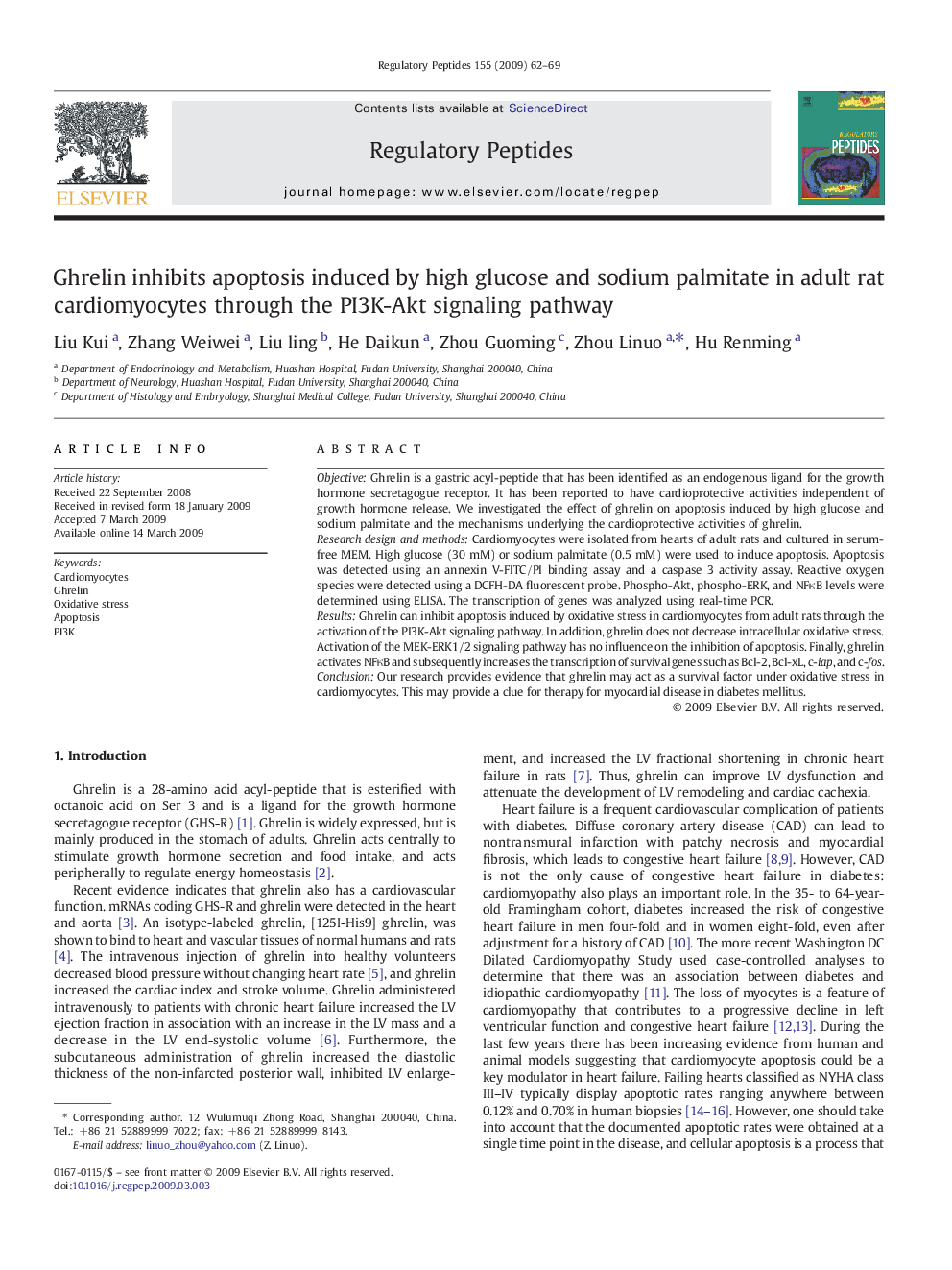| Article ID | Journal | Published Year | Pages | File Type |
|---|---|---|---|---|
| 2023091 | Regulatory Peptides | 2009 | 8 Pages |
ObjectiveGhrelin is a gastric acyl-peptide that has been identified as an endogenous ligand for the growth hormone secretagogue receptor. It has been reported to have cardioprotective activities independent of growth hormone release. We investigated the effect of ghrelin on apoptosis induced by high glucose and sodium palmitate and the mechanisms underlying the cardioprotective activities of ghrelin.Research design and methodsCardiomyocytes were isolated from hearts of adult rats and cultured in serum-free MEM. High glucose (30 mM) or sodium palmitate (0.5 mM) were used to induce apoptosis. Apoptosis was detected using an annexin V-FITC/PI binding assay and a caspase 3 activity assay. Reactive oxygen species were detected using a DCFH-DA fluorescent probe. Phospho-Akt, phospho-ERK, and NFκB levels were determined using ELISA. The transcription of genes was analyzed using real-time PCR.ResultsGhrelin can inhibit apoptosis induced by oxidative stress in cardiomyocytes from adult rats through the activation of the PI3K-Akt signaling pathway. In addition, ghrelin does not decrease intracellular oxidative stress. Activation of the MEK-ERK1/2 signaling pathway has no influence on the inhibition of apoptosis. Finally, ghrelin activates NFκB and subsequently increases the transcription of survival genes such as Bcl-2, Bcl-xL, c-iap, and c-fos.ConclusionOur research provides evidence that ghrelin may act as a survival factor under oxidative stress in cardiomyocytes. This may provide a clue for therapy for myocardial disease in diabetes mellitus.
